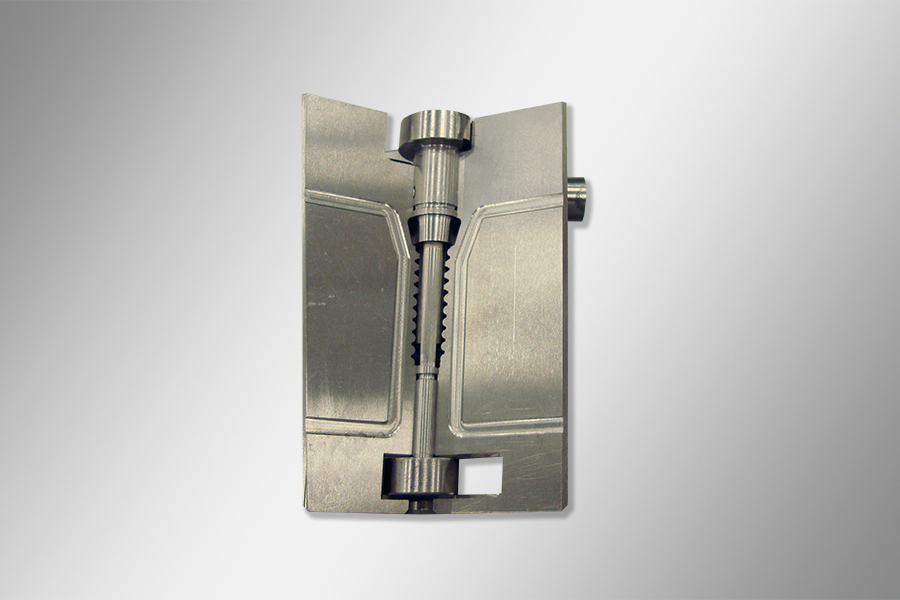


Injection Mold Prototyping
Injection mold prototyping is the process of developing a tool to expedite a molded part. Spectrum can create your part as close to the intended product design and functionality as possible using your requirements.

Injection molding prototyping offers several benefits that make it an attractive option for developing and testing new products.
Here are some of the key advantages:
Overall, injection molding prototyping is a powerful tool for product development, offering speed, precision, material versatility, and cost-effectiveness for both small-scale prototyping and large-scale production.
Spectrum has the capabilities to support your injection molding applications. Some highlights include:
We offer injection mold prototyping tooling such as multi-slide, open or closed, hand-loaded, or pick-a-part. Other prototyping options include near-net shapes and various surface finishes. We can get your product design development as close to production as possible.
Spectrum has invested in advanced metal 3D printing capabilities with Mantle. Mantle’s precision metal 3D printing technology is revolutionizing tooling component production by reducing the time and cost required to produce high-quality tools, molds, and dies. With quick iterations and speed to market being critical factors in medical device development, this capability makes Spectrum a preferred one-stop shop for faster and more efficient development iterations. Spectrum can assist in all aspects of product development, from concept to full production, with the speed and accuracy required for the medical device industry.
The benefits of Spectrum’s metal 3D printing include:
Here is how our process works:
We aim to provide you with equivalent injection molded samples or parts in the intended resin.
Injection mold prototyping is a collaborative process with the customer and our tooling/engineering groups. Project timelines vary based on the application, complexity, and requirements of the intended part. We’ll evaluate your application and requirements for your end-product design to propose the best solution.
Reach out to us in your early-stage development as we are a one-stop solutions provider, offering solutions from initial concept to prototype to production more efficiently than anyone else in the industry – saving valuable time and money.
Injection molding allows for the rapid production of prototypes. Once the initial mold is created, the process of producing additional prototypes is quick and efficient. This speed can significantly reduce the time it takes to iterate and refine a product design.
While the initial tooling and mold creation can be expensive, once these are in place, producing additional prototypes becomes relatively inexpensive, especially when compared to other prototyping methods like CNC machining.
Injection molding provides high levels of accuracy and precision, ensuring that each prototype is consistent and meets the required specifications. This is crucial for testing and evaluating the functionality and fit of the prototype.
Injection molding supports a wide range of materials, including thermoplastics, thermosetting polymers, and elastomers. This versatility allows for prototyping of various products, from rigid components to flexible parts.
Injection molding can accommodate complex and intricate designs, including features like undercuts, threads, and thin walls. This capability is particularly valuable for producing prototypes of products with intricate details.
The process can yield prototypes with smooth surfaces, reducing the need for additional finishing operations. This is especially important for products where aesthetics are crucial.
Once the mold is established, each prototype produced will be nearly identical. This consistency is essential for evaluating the performance and quality of the prototype.
Injection molding allows for the use of a wide range of materials, enabling designers to test different materials to determine which one is best suited for the final product.
Injection-molded prototypes can be used for functional testing. This means that you can assess how the prototype performs under real-world conditions, which is essential for validating design choices.
If changes are needed to the prototype, modifications can be made to the mold relatively easily. This enables quick iteration and refinement of the product design.
Once the final design is approved, the same molds and process can be used for large-scale production. This ensures that the transition from prototyping to full-scale manufacturing is smooth.
Once the tooling is in place, the cost per unit decreases significantly, making injection molding a cost-effective option for large production runs.